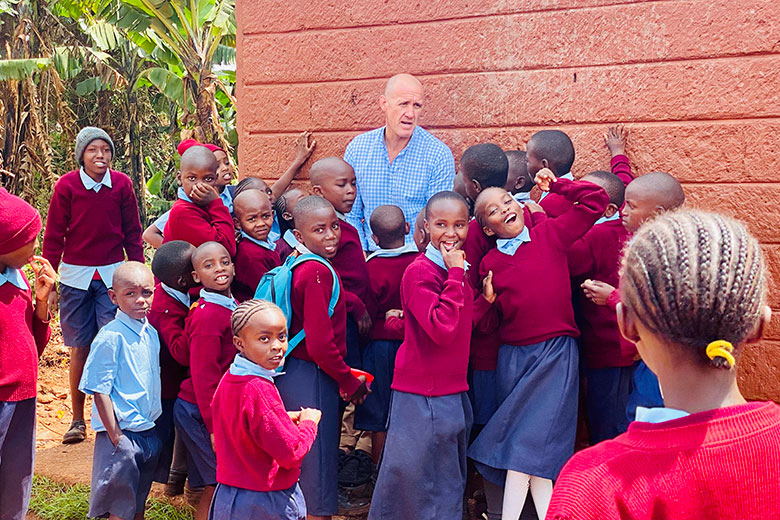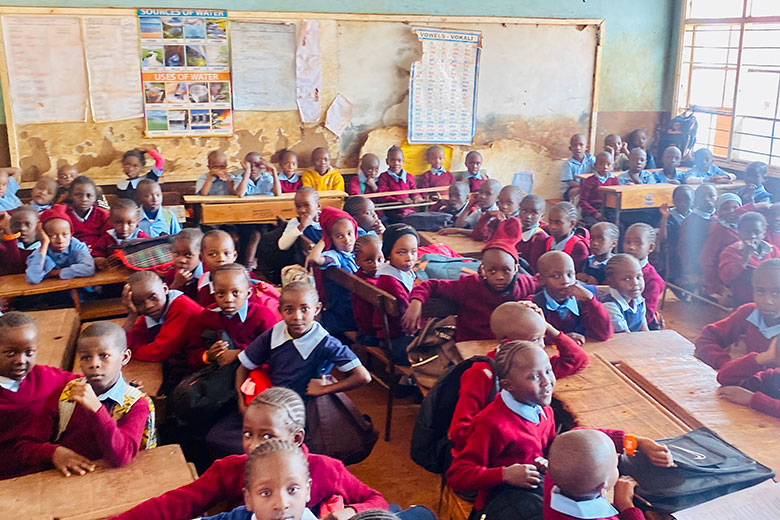
A typical classroom in Kenya with approx. 90 students per class, sharing desks but looking and feeling smart
By Brett Girven, Principal, The Arbor School
The landscapes of Kenya are vast, as far as the eye can see there is a canopy of grey-green acacia thorn trees and scrub. Above, the blue is vivid and juxtaposed with the cumulus clouds which seem fixed to the canvas like a fake scene created for a school play. Away from the summer haze of Dubai where my vision of the horizon is always sepia-toned, everything seems unbelievably clear, with the colour saturation tuned to maximum. The nighttime quiet at Kivuli camp is almost painful. I feel myself needing to fill the void with something – talk, music, action…it takes a full day to appreciate how to sit with the silence. Kivuli encourages introspection.
From Dubai to Kenya
Arbor School is a sustainable school based in the United Arab Emirates, in the urgent and fast-paced city of Dubai. As an ‘Ecological School grounded in the British Curriculum’, we take sustainability seriously and believe that the route to a future where there is enough for all, forever, requires a transformational learning experience which engages head, heart and mind. As a part of the drive to contribute to a culture of sustainability, Arbor took the decision to partner with Kapes for the production of a sustainable school uniform just as the global Covid-19 pandemic gripped the world. The decision had many moving parts but in hindsight was a ‘no-brainer’, a partnership where both parties are tightly aligned in terms of purpose and passion. Not only would Kapes provide uniforms produced in the most sustainable way possible, with the founder standing behind his commitment to source organic and sustainably grown raw materials, but Kapes also ensured they were produced by workers receiving fair pay and fair work conditions, with a pre-planned circular flow of resources as used uniforms would enter a carefully designed pre-loved sales cycle. The icing on the cake was the philanthropic element. For each uniform set Arbor, students purchase, a child in need SOMEWHERE in the world would receive a uniform which allowed them to go to school well clothed.
Change is never easy, and the launch of a new uniform was certainly not without heartache and drama. As a school Principal well versed in pedagogy and impact cycles, I quickly had to school myself on the organic cotton picking challenges faced under Covid restrictions, and procurement times for organic cloth from India. Topics I can confidently say my teacher training did not prepare me for. Fast forward a year, and Matthew Benjamin, the founder and CEO of Kapes emailed and asked, “Would you like to come and visit the school where your students are providing uniforms to children in need?” Needless to say…next stop Kenya. Whilst I could dwell on the incredible experience of visiting Kirigu Primary school in Nairobi, where smiling students proudly wore their new uniforms without which they would be excluded from attending school, the more transformational experience occurred at a much quieter and less-heralded partner of Kapes, approximately five hours on a quietly rocking train to the East.
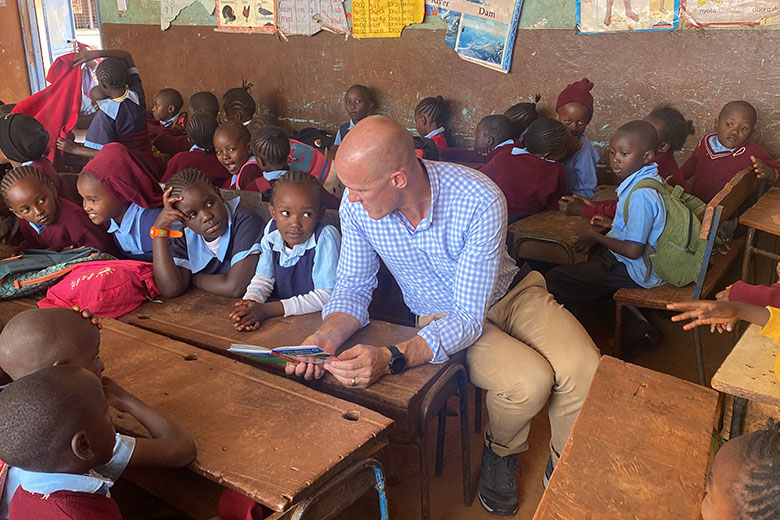
For each uniform set Arbor, students purchase, a child in need SOMEWHERE in the world would receive a uniform which allowed them to go to school well clothed
Rukinga Ranch
Kivuli camp sits in the middle of Rukinga Ranch in the Eastern region of Kenya, a collection of thatched huts that range from dormitory to family huts to outdoor classrooms. Comfy and homely but not glamorous. Baboons bark beyond the fence, and whilst stories of bull elephants rampaging towards the camp exist, these are fading into distant memory like the hillocks which fade into the creeping darkness. The camp is well maintained, and the rangers patrol the perimeter. Stoic, smiling men, shining with purpose, and radiating confidence. This is their garden. Rukinga Ranch forms a part of the Kasigau Wildlife Corridor between Tsavo East and Tsavo West National Parks, and in association with Wildlife Works, has been going through a community-based conservation effort to conserve and preserve the natural environment. Wildlife Works is situated on the Rukinga Ranch, but its impact can be felt far beyond the ranch as it reaches out into the community of this area. The local Kenyan staff are the teachers, the scientists, the chefs and the experts. Ms Rahel gently detailed the soap making process – the hard science of acids, bases and neutralization supplemented by the aromatic sensuous sounding cinnamon, lime and jojoba. Mr George is a gardener, mad scientist and passionate conservator rolled into one. He keeps the audience enthralled despite the heat, mixing Kiswahili with English, his knowledge of place and community mixed with the heart-science of companion planting and permaculture. Messieurs Bernard, Daniel and Alan all brought their passion to our visit, illustrating at each step how their part of the picture bought sustainability, enterprise and community to the fore. A trilogy of powerful forces for sustainable change.
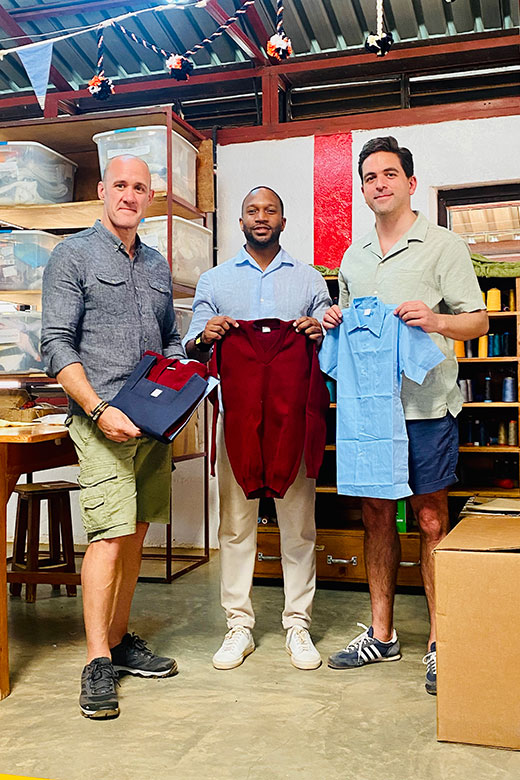
The story of Kivuli, Rukinga and Wildlife Works is told in all the small enterprises taking place at their headquarters, with a garment factory; a greenhouse and nursery; a seamstress academy and various supporting workshops and offices. In reality, this is a much more important story, for which these separate enterprises are only minor part actors to the main player – conservation. Or more precisely, community-based conservation. The garment factory provides work for the local community, so they may feed their families and don’t need to hunt for bushmeat or burn forest for charcoal…conservation is the whispered undertone. The nursery garden employs gardeners, purchases seedlings from local individuals and gives those seedlings back to the community for free…more work, more self-supporting families…conservation goes from whisper to murmur. The rangers are locally employed, educated, trained, and unarmed. They educate their community, monitor and protect the environment, and minimise human-wildlife conflict…conservation begins to resonate loudly throughout the community. Natural selection favours those communities in which individuals act for the benefit of the whole community. As humans, we call this ethical behaviour. Ethics always has to do with community; it is behaviour for the common good. This visit to Kenya is to find an exemplar of social enterprise – business for common good. It would be next to useless, of course, to talk about the possibility of good solutions to wicked problems if none existed in proof and in practice.
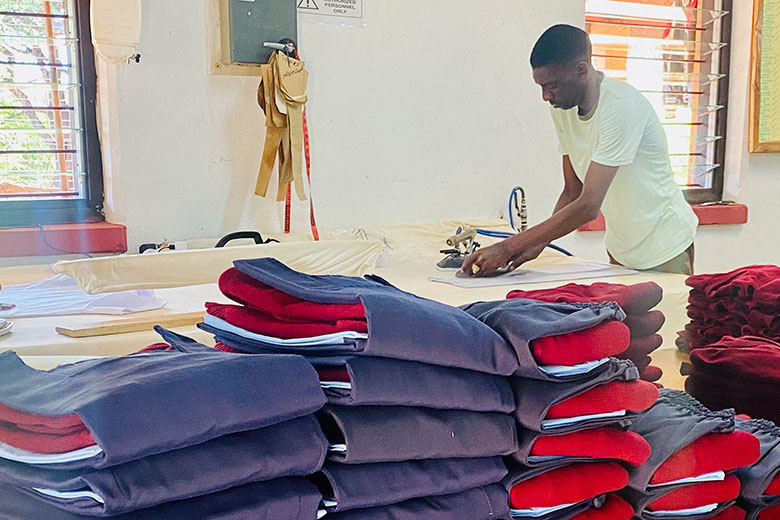
Wildlife Works is situated on the Rukinga Ranch, but its impact can be felt far beyond the ranch as it reaches out into the community of this area
Proof and Practice
As a teacher, if you wish a student to know what an appropriate analysis of Othello might contain, you show them a previous example to critique. If you are teaching a multistep equation in a chemistry classroom, students need a worked example to see the process from start to finish. In the teacher world, these exemplars are called a WAGOLL – ‘what a good one looks like’. At Arbor, we are attempting to teach a programme of eco-literacy that moves from the obvious, practical and connected to the sophisticated and complex. Moving from muddy play experiential learning to social enterprise and environmental justice. What is missing at the highest level, for me at least, has been a tangible and successful WAGOLL of this nuanced approach. My visit to Rukinga and Wildlife Works has provided that WAGOLL, the proof and practice. In 1998 this success story kicked off as Wildlife Works opened with a vision of an ecological economy, an economy that had cooperation as a fundamental principle, where competition is subordinate, and where solidarity and compassion lead to a better outcome for everyone. With a dash of external expertise, these small but powerful community-based enterprises kicked off. Communities benefitted and began to own the solutions to the intractable problems that existed. But the major leap forward came when Wildlife Works and the local community monetized their number one asset… the trees. By monetizing the carbon-absorbing capacity (known as ‘carbon sequestration’) of shrubs, trees and soil, the impetus was created. Communities were encouraged and importantly resourced to start or restart what is not new knowledge or new skills but refocused on a community that had for some time focused on egocentric, destructive, extractive and consumptive behaviours. The behaviours of survival.
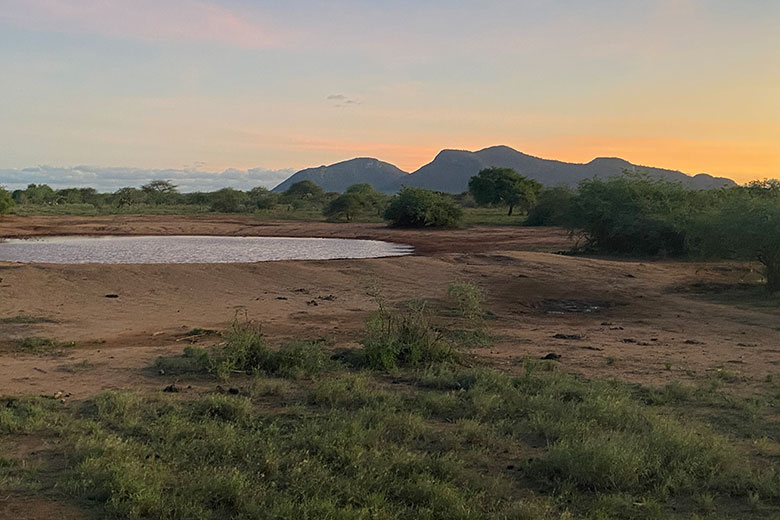
From Survival to Abundance
The father of Positive Psychology, Martin Seligman, uses a term, ‘north of neutral’. Positive Psychology is the science of helping individual human beings to flourish. The ‘north of neutral’ environmental equivalent could be termed ‘abundance’. Paradoxically, abundance is best achieved not through an approach of ‘more’, but an approach of accepting a measure of sufficiency – accepting that ‘enough is enough’ leads to ‘enough for all’. And the social equivalent, i.e. collective flourishing, could be ‘harmony’. Here in Kenya, I have seen a community which has begun to flourish, with teams of locally employed and empowered researchers measuring individual and community wellbeing. Although I can only observe from the outside, everything I saw and heard would lead me to believe that the direction of travel is certainly northward – towards flourishing. In an environment that the founder of Wildlife Works himself described as “a bruised, balding land, barren of wildlife”, we saw ample wildlife – elephant and buffalo, warthogs and baboons, cheetah and lion. Whilst it was a dry time of year in a drought-prone region, tree cover was everywhere, and dams both natural and man-made provided life-sustaining water for all animals. It is an environment that whilst under threat, is beginning to be the abundant landscape that we see in our mind’s eye when we imagine the plains of Africa. And most importantly, as envisaged by the founder Mike Korchinsky, the human world and the natural world are moving towards harmony. Human-wildlife conflict is reducing, animals are returning, and plant life is sprouting. Mike’s premise was that if you want wildlife, you have to make sure it works for local communities. Whilst this may sound a bit utilitarian, it seems to be working.
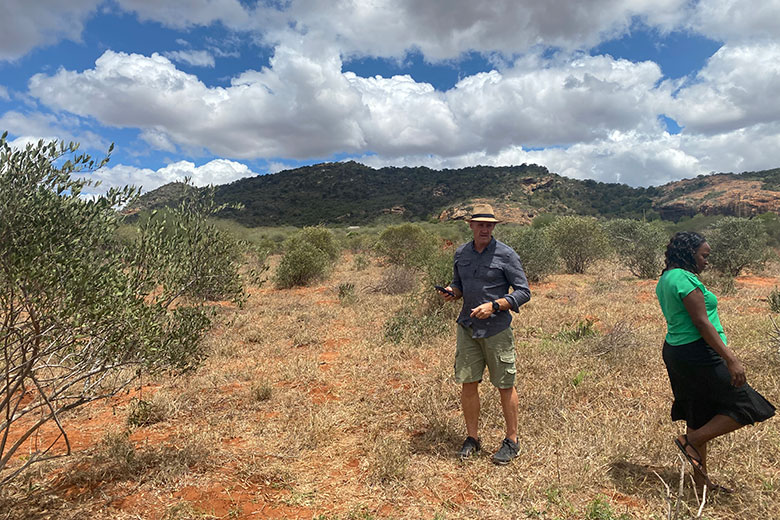
This expedition proffered the proof and practice of a social enterprise in action
Why am I Here?
So, what brought a school Principal to the middle of Kenya in the middle of term time when he should be running assemblies and checking on classrooms? Arbor has been on a journey of self-discovery to deliver an education that delivers on its vision of ‘enough for all forever’. That journey includes an up-levelled ambition of our original pillars – sustainability, eco-literacy and global environmental justice become the far more ambitious Flourishing, Abundance and Harmony. This expedition proffered the proof and practice of a social enterprise in action. I witnessed the positive impact of the energy we have expended at Arbor making a real difference, and envisaged new ways to bring experiential learning to the students of Arbor. Through the window of the gently rocking train, Mount Kilimanjaro slides by, shrouded in cloud. Tsavo National Park stretches endlessly out of sight on my other side, and the announcer describes how this section of railway was where the man-eaters of Tsavo, a pair of hungry lions, ravaged the railway construction team during the era of colonial expansion and construction. The landscape is ever-changing, yet endlessly the same. As I return to Nairobi and onwards to the shiny but sepia-toned Dubai, I feel education is much the same. Transformation is slow, the process rocks from side to side with the buffeting of changing educational ideas, politics and personalities. Yet the journey is as important as the destination, the where, why and what having equal importance.
Everyone needs a bit of inspiration, and this has been just the dose I needed.
Kwaheri – Goodbye!
















